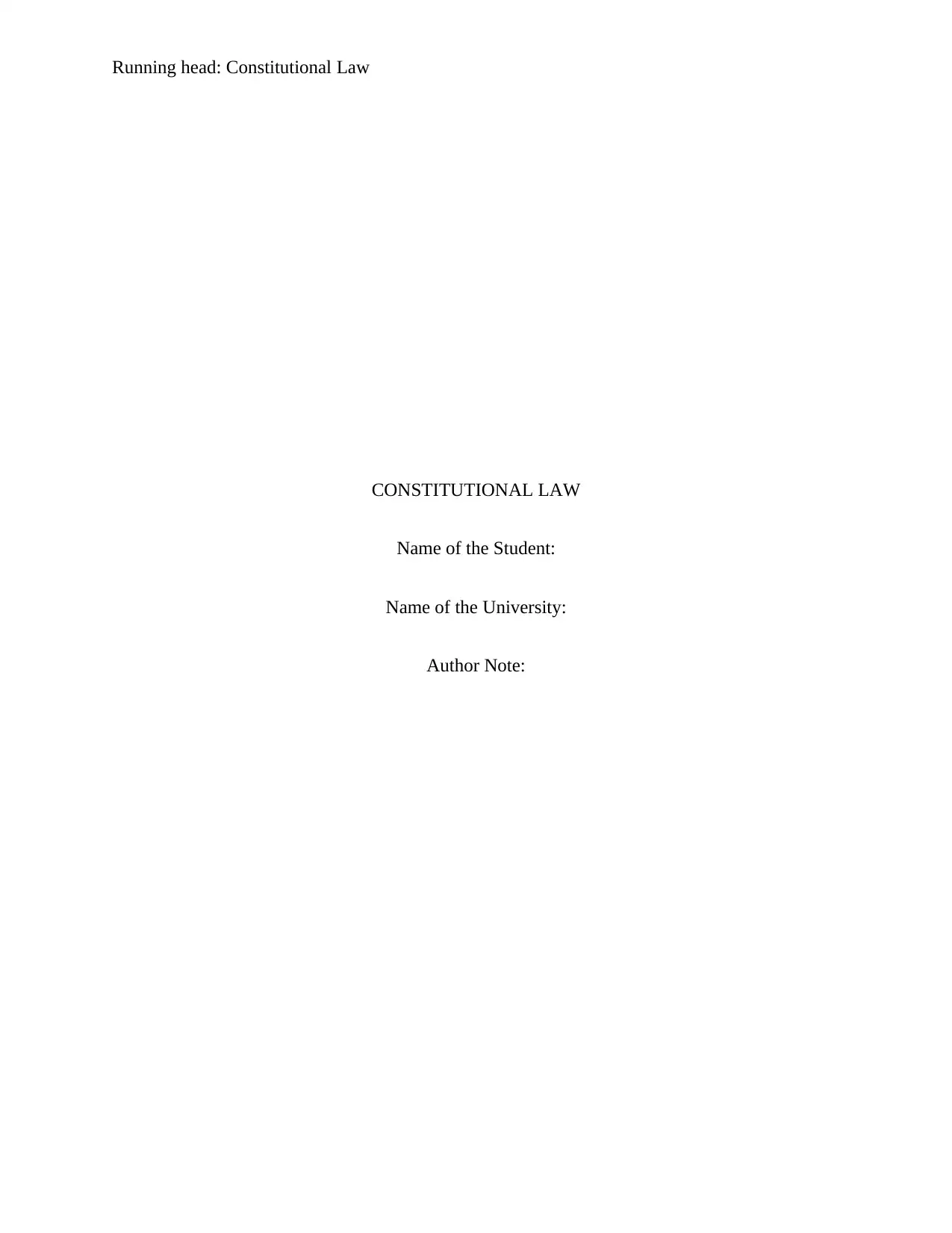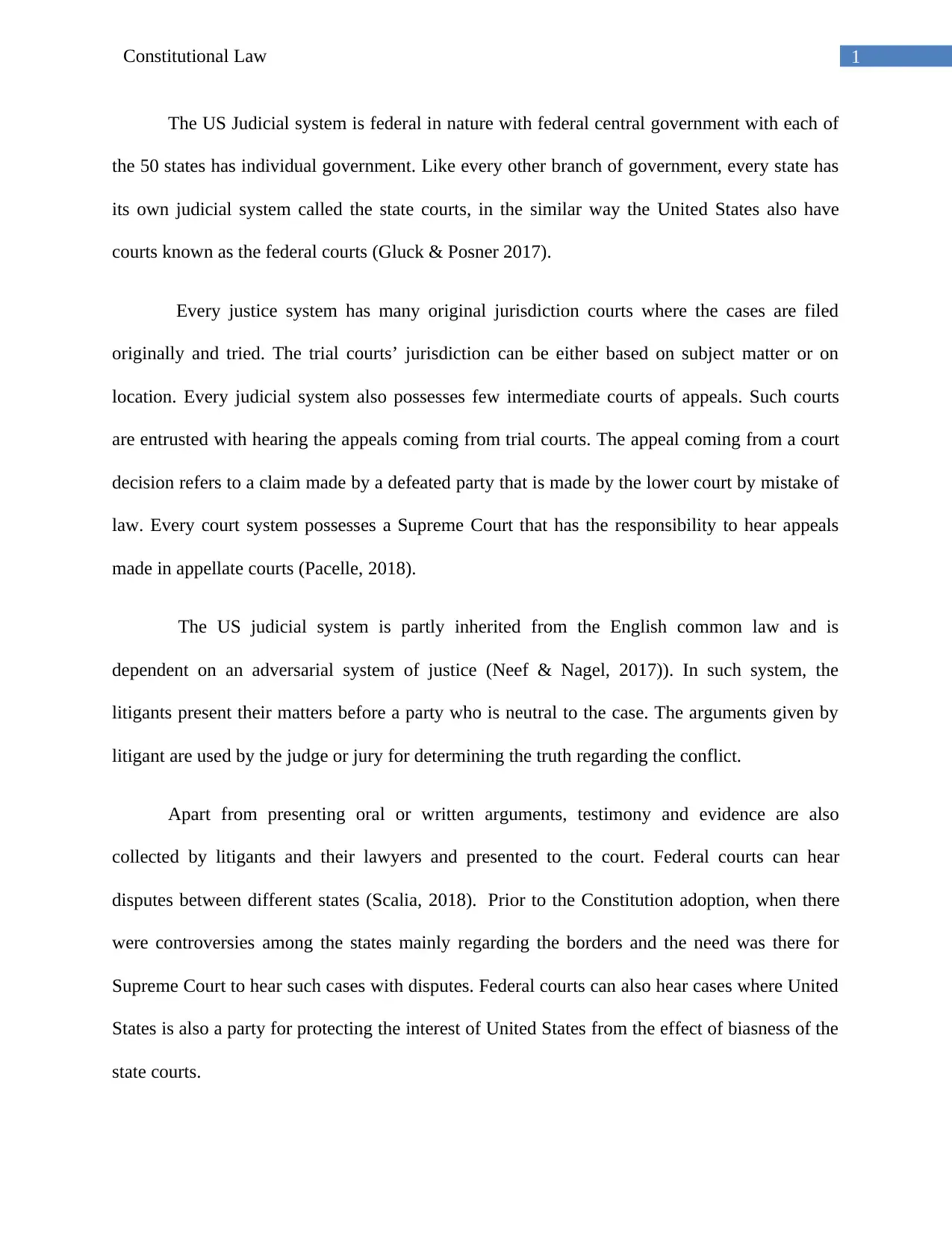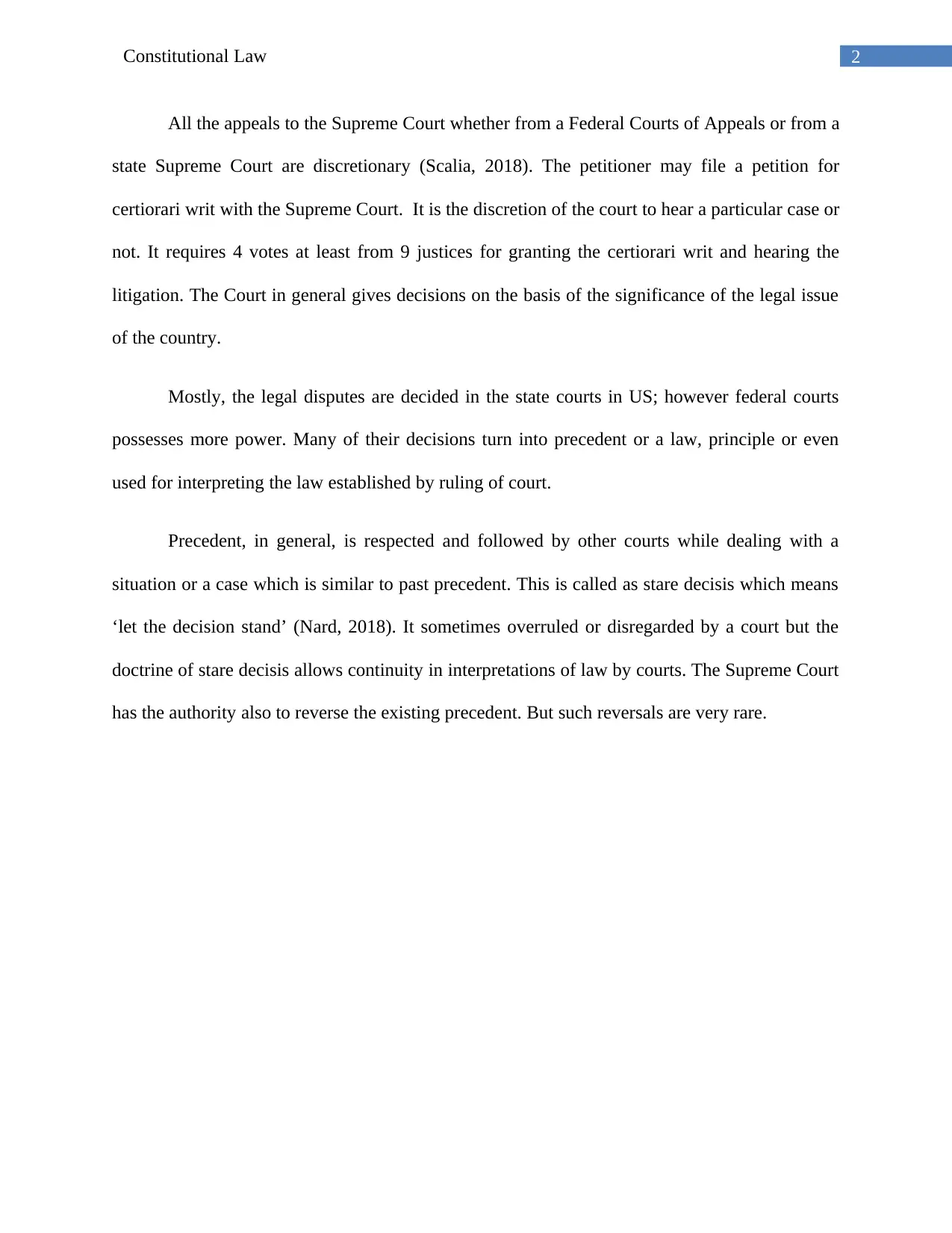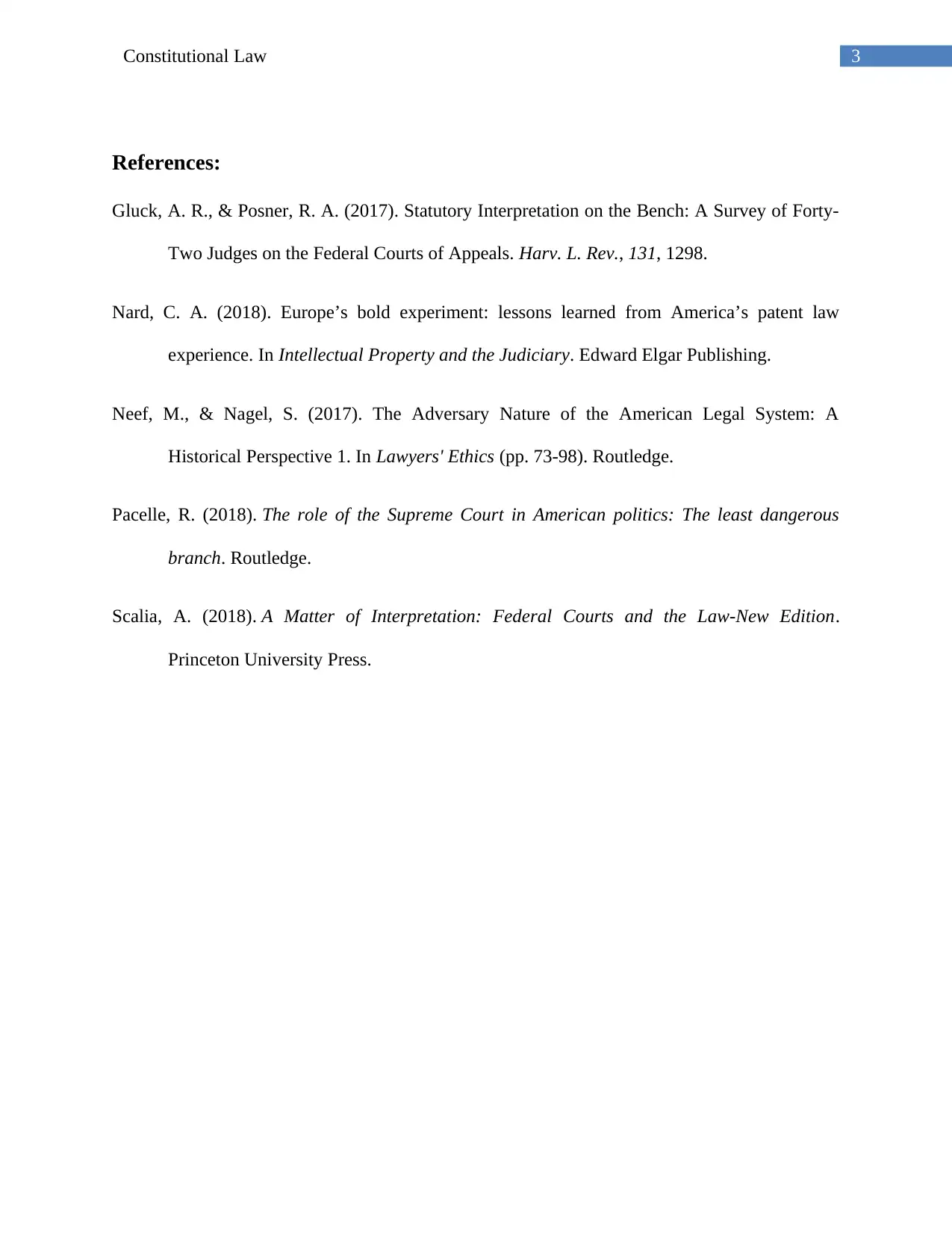Constitutional Law: Overview of the US Judicial System and Precedent
VerifiedAdded on 2022/11/25
|4
|767
|217
Essay
AI Summary
This essay provides a comprehensive overview of the US judicial system, emphasizing its federal nature and the roles of both federal and state courts. It explains the structure of the court system, from trial courts to the Supreme Court, and highlights the significance of original jurisdiction and appellate courts. The essay details the adversarial system of justice and the importance of precedent (stare decisis) in legal decision-making, illustrating how decisions in the federal courts can shape legal principles. It also touches on the Supreme Court's discretionary power in hearing cases and the process of granting certiorari, underscoring the impact of the court's rulings on the legal landscape. The document concludes by referencing the key roles and responsibilities of the US judicial system and the importance of precedent in maintaining continuity in legal interpretations.
1 out of 4






![Criminal Justice 2, [University Name]: The Role of US Court of Appeal](/_next/image/?url=https%3A%2F%2Fdesklib.com%2Fmedia%2Fimages%2Fwf%2F3d1f9f767ddc4458813df27744c339d4.jpg&w=256&q=75)



![[object Object]](/_next/static/media/star-bottom.7253800d.svg)